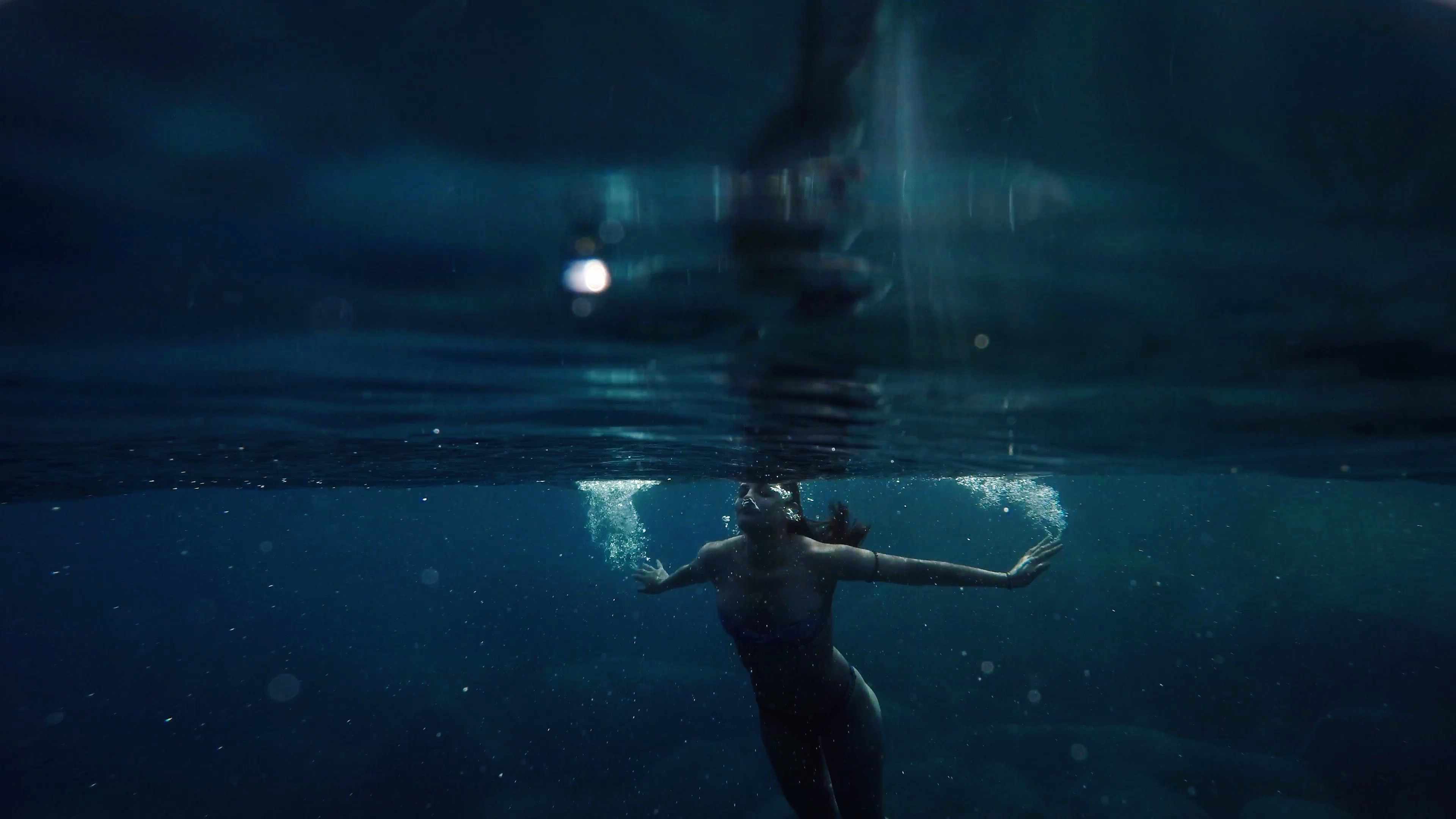
Thalassophobia is the intense fear of deep bodies of water like oceans, seas, and lakes. This fear can be overwhelming, causing anxiety and panic attacks. Many people experience unease when thinking about what lurks beneath the surface. Thalassophobia isn't just about fearing water; it's about the unknown depths and what might be hiding there. From ancient myths of sea monsters to modern-day shark movies, our imaginations run wild. Understanding thalassophobia can help those who suffer from it and those who want to learn more about this fascinating fear. Let's dive into 35 intriguing facts about thalassophobia and uncover what makes the deep blue so terrifying.
Key Takeaways:
- Thalassophobia is a fear of deep water and can affect famous people too, but there are ways to manage it, like therapy and gradual exposure to water activities.
- Despite the fear, the ocean is full of fascinating facts, and many people have overcome their fear by learning about marine life and exploring the ocean through activities like scuba diving.
What is Thalassophobia?
Thalassophobia is the intense fear of deep bodies of water like oceans, seas, and lakes. This fear can be overwhelming, causing anxiety and panic attacks. Let's dive into some fascinating facts about this phobia.
-
Thalassophobia comes from the Greek words "thalassa" meaning sea and "phobos" meaning fear.
-
This phobia is not just about the water itself but also what might be lurking beneath the surface.
-
People with thalassophobia often avoid activities like swimming, boating, or even visiting the beach.
Symptoms of Thalassophobia
Understanding the symptoms can help identify if someone has this phobia. Here are some common signs.
-
Rapid heartbeat and shortness of breath when near deep water.
-
Sweating, trembling, and feeling dizzy at the sight or thought of deep water.
-
Nausea and a sense of impending doom when thinking about the ocean.
Causes of Thalassophobia
Several factors can contribute to the development of thalassophobia. These causes can be psychological or environmental.
-
Traumatic experiences related to water, such as near-drowning incidents.
-
Genetic predisposition to anxiety disorders can increase the likelihood of developing this phobia.
-
Cultural influences and stories about sea monsters or shipwrecks can instill fear.
Impact on Daily Life
Thalassophobia can significantly affect a person's daily activities and choices. Here’s how.
-
Avoiding vacations or trips that involve water activities.
-
Difficulty watching movies or reading books that feature the ocean.
-
Struggling with everyday tasks like taking a bath or shower.
Famous People with Thalassophobia
Even celebrities are not immune to this fear. Some well-known individuals have openly discussed their struggles.
-
Actress Emma Roberts has mentioned her fear of deep water in interviews.
-
Singer Adele has admitted to having a fear of the ocean.
-
Actor Will Smith has also talked about his discomfort with deep water.
Treatment Options
There are various ways to manage and treat thalassophobia. Here are some effective methods.
-
Cognitive-behavioral therapy (CBT) helps change negative thought patterns.
-
Exposure therapy gradually introduces the person to deep water in a controlled environment.
-
Medications like anti-anxiety drugs can help manage symptoms.
Interesting Facts About Thalassophobia
Some lesser-known facts about this phobia can be quite intriguing.
-
Thalassophobia is different from aquaphobia, which is the fear of water in general.
-
Virtual reality (VR) is being used to help treat this phobia by simulating deep-water environments.
-
Thalassophobia can sometimes be linked to a fear of the unknown or the vastness of the ocean.
Historical and Cultural References
Thalassophobia has been depicted in various cultures and historical contexts. Here are some examples.
-
Ancient sailors often had a fear of the sea due to myths about sea monsters.
-
Literature like "Moby-Dick" and "20,000 Leagues Under the Sea" explores themes related to thalassophobia.
-
Many cultures have legends about dangerous creatures lurking in the depths, reinforcing this fear.
Thalassophobia in Pop Culture
This phobia has made its way into movies, TV shows, and video games. Here are some notable mentions.
-
The movie "Jaws" is a classic example that plays on the fear of the ocean.
-
TV shows like "Lost" and "The Abyss" feature deep-water scenarios that can trigger thalassophobia.
-
Video games like "Subnautica" and "Bioshock" create immersive underwater environments that can be terrifying for those with this phobia.
Coping Strategies
Living with thalassophobia can be challenging, but there are ways to cope. Here are some strategies.
-
Practicing relaxation techniques like deep breathing and meditation.
-
Seeking support from friends, family, or support groups.
-
Gradually exposing oneself to water-related activities in a safe and controlled manner.
Fun Facts About the Ocean
Despite the fear, the ocean is a fascinating place. Here are some fun facts that might help shift your perspective.
-
The ocean covers more than 70% of the Earth's surface.
-
More than 80% of the ocean remains unexplored and unmapped.
-
The deepest part of the ocean, the Mariana Trench, is over 36,000 feet deep.
Overcoming Thalassophobia
Many people have successfully overcome their fear of deep water. Here are some inspiring stories.
-
Some individuals have taken up scuba diving to confront and conquer their fear.
-
Others have found solace in learning more about marine life and the ocean's ecosystem.
Facing the Depths
Thalassophobia, the fear of deep bodies of water, affects many people worldwide. This fear can stem from various sources, including traumatic experiences or simply the vast unknown that the ocean represents. Understanding thalassophobia helps in managing it better. Techniques like gradual exposure, therapy, and mindfulness can make a significant difference.
Remember, it's okay to seek help if this fear impacts your daily life. Knowledge about thalassophobia not only aids those who suffer from it but also fosters empathy in others. The ocean, while daunting, holds incredible beauty and mystery. By addressing fears, one can start to appreciate the wonders beneath the waves.
Facing fears head-on, with the right support, can transform a phobia into a journey of discovery. The ocean's depths may be intimidating, but they also offer endless possibilities for exploration and wonder.
Frequently Asked Questions
Was this page helpful?
Our commitment to delivering trustworthy and engaging content is at the heart of what we do. Each fact on our site is contributed by real users like you, bringing a wealth of diverse insights and information. To ensure the highest standards of accuracy and reliability, our dedicated editors meticulously review each submission. This process guarantees that the facts we share are not only fascinating but also credible. Trust in our commitment to quality and authenticity as you explore and learn with us.


